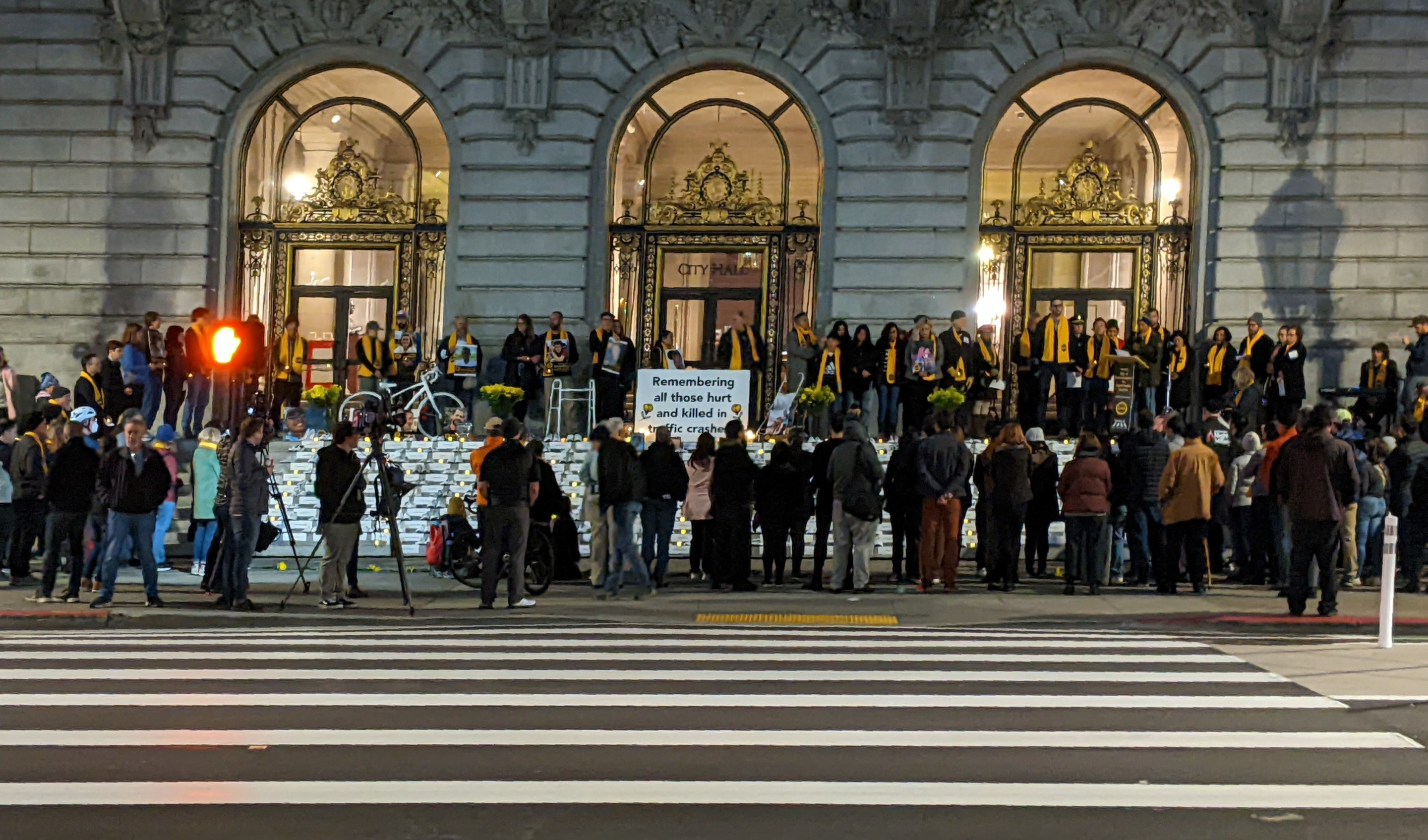"Three hundred and seventeen pairs of shoes on the steps, representing 317 lives lost in traffic crashes in San Francisco in the past decade," said Walk San Francisco's Jodie Medeiros, addressing a crowd of some 150 people who gathered for the annual World Day of Remembrance event Sunday evening in front of city hall. "We show up year after year because we have to. With our collective grief and anger–and our cry for change."
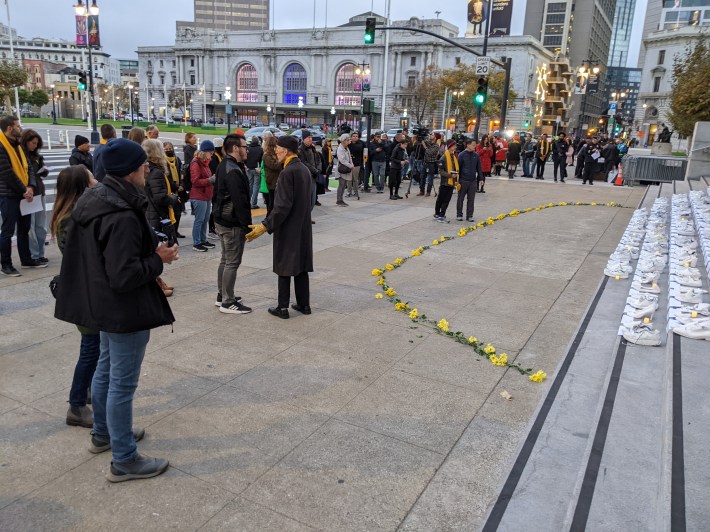
But that change has not been forthcoming, with 32 fatal crashes already in 2024, the second-highest number since San Francisco took its 2014 Vision Zero pledge to end all fatalities on its streets. Of course, as many pointed out at the event, few if any of these deaths are truly accidental. The reason there's been no progress is because the city continues to prioritize traffic throughput over safety. "Don't let people hide behind the anonymity of government," said Richard Zieman, one of the speakers at the event. His son Andrew was killed when he was pinned against a wall by a driver, across from Sherman Elementary School at the corner of Franklin and Union Street in 2021. Zieman, who is suing the city over his son's death, blamed bureaucrats for holding up proposed speed-reducing measures that might have prevented the tragedy. "They were begged to do something, but they waited."
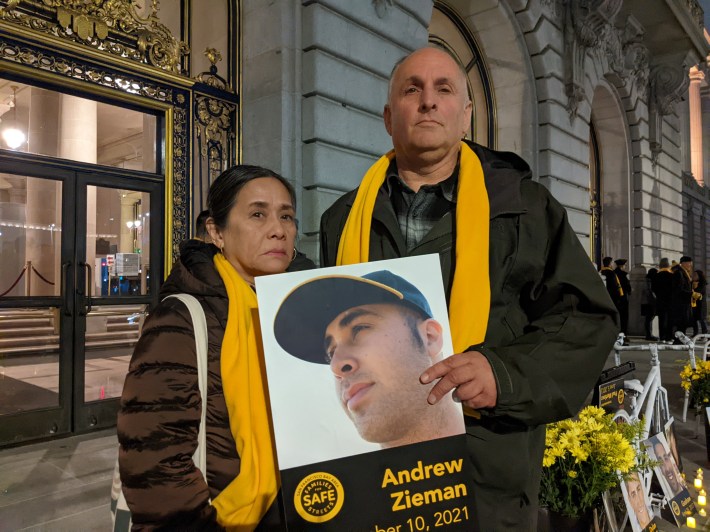
Politicians familiar to the safe-and-livable-streets-community, including newly re-elected State Senator Scott Wiener, City Attorney David Chiu, and newly re-elected Supervisor Myrna Melgar, read the names of all the victims of traffic violence from the last ten years.
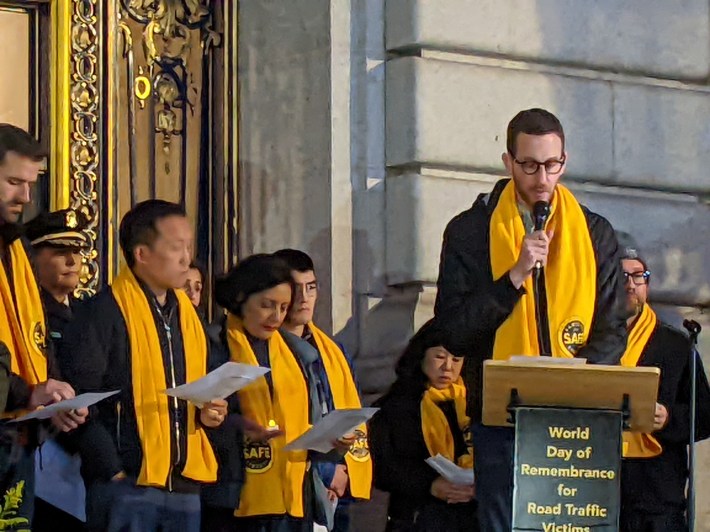
So why is there reason to think things could be different moving forward? For one, this is the first time in all the years this editor has covered events at city hall that there wasn't a car parked in the bike lane in view of the speakers. That's thanks to a new parking-protected bike lane installed shortly before the election on Polk from Grove to McAllister Street. And two of the corners around city hall now have concrete islands to slow turning cars (see image below).
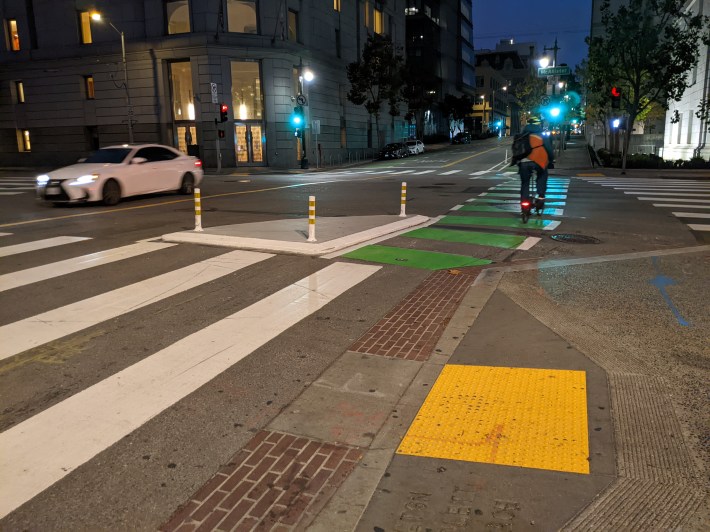
Politically, there's also reason for guarded optimism, at least on the local level.
"We have a new mayor coming in and a new board of Supervisors," said KidSafeSF's Robin Pam, who also attended the event. "I'm hopeful they will take traffic violence seriously."
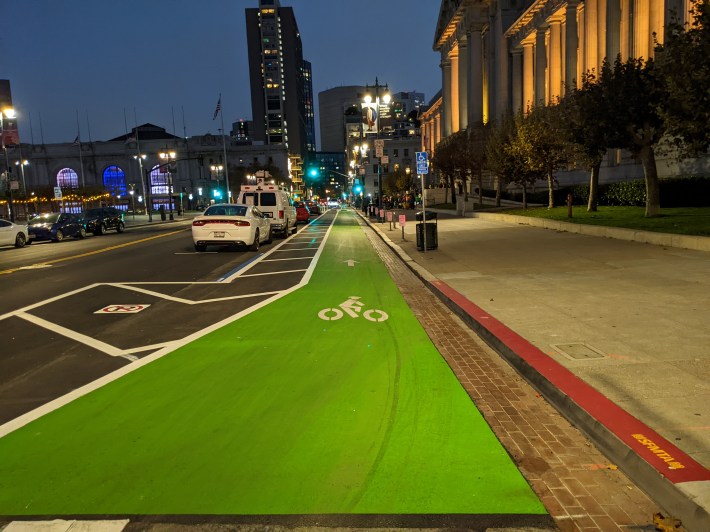
A few of those new politicians attended the event, including the incoming District 3 Supervisor, Danny Sauter. He will replace termed-out Supervisor Aaron Peskin, who is notorious for watering down or completely blocking safe-streets projects, as well as harming transit. "We have to realize that what we did over the last ten years for Vision Zero just was not ambitious enough," said Sauter, adding that the city needs to use more planters and other types of concrete infrastructure. "We've got plenty of gaps on Polk Street," he said, to give an example of a street that needs vast improvements.
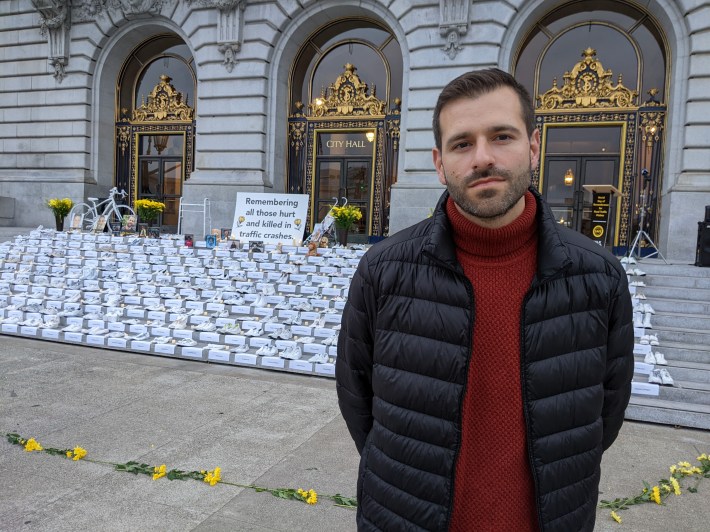
Newly confirmed SFMTA Board member Mike Chen was also at the event. "We have to figure out where we can move forward with daylighting and speed cameras," he told Streetsblog. "There's much more we can do."
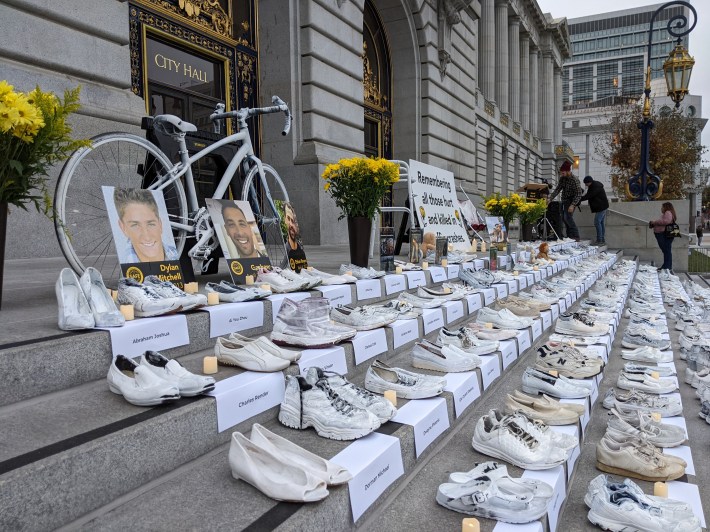
On a related note, Streetsblog has also verified that SFMTA Board Chair Amanda Eaken, who was not at the event, will be leaving her position (her name no longer appears on the most recent SFMTA agenda). In addition, Streetsblog has reached out to mayor-elect Daniel Lurie to find out what plans he has for moving forward on street safety. Look for more on that in future posts.
